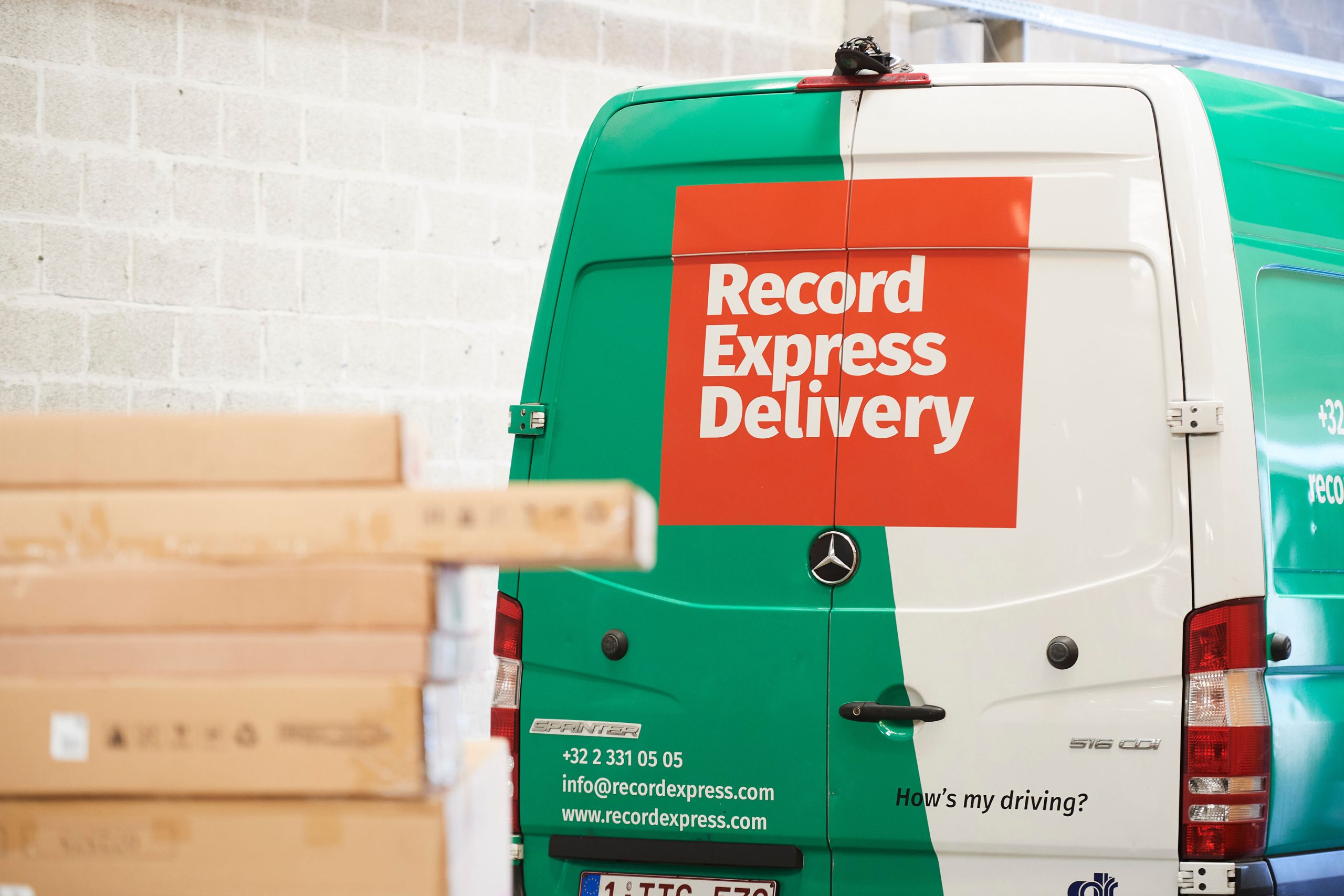Services logistiques sous douane dans l'UE
Les services logistiques sous douane permettent aux entreprises de stocker des marchandises non Union dans des entrepôts douaniers agréés sans payer de droits d'importation ou de TVA jusqu'à ce qu'elles soient mises en libre pratique, réexportées ou déplacées sous un autre régime douanier. ENVOYER LE COLISHome / Logistique du commerce électronique / Services logistiques sous douane dans l’UE

Services logistiques sous douane dans l’UE
TL;DR : Les services logistiques sous douane permettent aux entreprises de stocker des marchandises non communautaires dans des entrepôts douaniers agréés sans payer de droits d’importation ou de TVA jusqu’à ce qu’elles soient mises en libre pratique, réexportées ou déplacées dans le cadre d’un autre régime douanier. Dans l’UE, ces services sont régis par le code des douanes de l’Union (UCC) et aident les entreprises à gérer leur trésorerie, à consolider leurs opérations transfrontalières et à simplifier la réexportation. Ils nécessitent des autorisations, des enregistrements et des contrôles stricts.
Que sont les services logistiques sous douane ?
Les services logistiques sous douane sont des activités autorisées par les douanes de l’UE – principalement l’entreposage douanier – qui permettent aux entreprises de stocker des marchandises en suspension de droits et de TVA jusqu’à ce qu’une décision finale des douanes soit prise(Commission européenne – Fiscalité et douanes). Ce terme générique couvre l’entreposage sous douane, le perfectionnement actif, le stockage temporaire et les mouvements connexes sous surveillance douanière.
- Les marchandises restent sous contrôle douanier et les droits de douane/taxe sur le chiffre d’affaires sont suspendus.
- S’applique aux marchandises non Union (et, dans certains cas, aux marchandises Union dans le cadre de procédures spéciales).
- Soutien au report des charges fiscales et à la flexibilité de la mise sur le marché
- Utile pour la réexportation, les opérations à valeur ajoutée et la distribution régionale
- Opère dans le cadre d’autorisations accordées par les autorités douanières nationales
À emporter : Le terme “sous douane” signifie un entreposage sous surveillance douanière avec suspension fiscale, ce qui donne aux entreprises du temps et de la flexibilité avant de décider de leur destination finale.
Comment fonctionnent les entrepôts sous douane dans l’UE ?
Les entrepôts sous douane de l’UE sont des locaux autorisés où les marchandises sous contrôle douanier peuvent être placées sous le régime spécial de l’entrepôt douanier jusqu’à leur mainlevée, leur réexportation ou leur transfert(Organisation mondiale des douanes). En vertu du code des douanes de l’Union, les opérateurs doivent tenir des registres électroniques, assurer la traçabilité et permettre l’accès et les contrôles douaniers.
- Les marchandises entrent dans l’entrepôt sous couvert d’une déclaration en douane ou en provenance d’un dépôt temporaire.
- Les droits de douane et la TVA à l’importation ne sont pas exigibles pendant la durée de la procédure.
- Manipulation autorisée : préservation de la qualité, emballage, étiquetage ; toute transformation doit suivre des procédures autorisées.
- Les mouvements d’entrée et de sortie sont enregistrés ; le stock est contrôlable au niveau de l’article ou du lot.
- Options de sortie : mise en libre pratique (droits/tVA dus), réexportation ou transfert vers une autre procédure.
À retenir : L’entrepôt est un statut juridique autant qu’un lieu – la conformité dépend des autorisations, des enregistrements et d’un contrôle des stocks prêt à l’audit.
Qu’est-ce qui peut être stocké et pendant combien de temps ?
La plupart des marchandises non Union peuvent être stockées dans des entrepôts sous douane de l’UE sans limite de temps, à condition que les conditions UCC et les règles sectorielles soient respectées(EU Access2Markets). Les marchandises dangereuses, sanitaires/phytosanitaires, à double usage ou soumises à accises peuvent faire l’objet de licences ou de contrôles supplémentaires prévus par la législation européenne et nationale.
- Large couverture des produits ; les catégories sensibles peuvent nécessiter des permis supplémentaires
- Il n’y a pas de délai général à l’échelle de l’UE pour l’entreposage douanier, mais les conditions doivent rester remplies.
- L’intégrité et l’identification du stock doivent être maintenues à tout moment.
- Les produits soumis à accise peuvent être stockés en suspension d’accise dans des régimes distincts, le cas échéant.
À retenir : La flexibilité du temps est un avantage essentiel, tant que les conditions d’autorisation, les règles spécifiques aux produits et les contrôles des stocks sont respectés.
Comment les droits et la TVA sont-ils traités dans le cadre de la logistique sous douane ?
Les droits à l’importation et la TVA sont suspendus tant que les marchandises restent sous le régime de l’entrepôt douanier ; les taxes ne deviennent exigibles que lorsque les marchandises sont mises en libre pratique(EUROPA). Les marchandises réexportées ne sont généralement pas soumises aux droits d’importation ou à la TVA de l’UE. Des procédures spéciales (par exemple, le perfectionnement actif) permettent également d’exonérer ou de rembourser les droits sur les produits transformés lorsqu’ils sont réexportés.
- Avantage en termes de trésorerie : report des droits de douane et de la TVA jusqu’à ce qu’une vente dans l’UE soit certaine.
- La réexportation permet d’éviter les taxes d’importation de l’UE et d’améliorer les marges.
- Le perfectionnement actif peut suspendre/récupérer les droits sur les intrants utilisés pour les produits d’exportation
- Alignement de la comptabilité TVA sur le résultat douanier lors de la mainlevée
À retenir : La logistique sous douane est un outil fiscal : ne payez les droits/taxes que lorsque la valeur est réalisée dans l’UE, sinon évitez de les payer à l’exportation.
Quels sont les avantages pour le commerce transfrontalier ?
La logistique sous douane permet de créer des centres de distribution dans l’UE, de reporter les taxes et de simplifier la consolidation transfrontalière, en particulier pour l’exécution et la réexportation dans plusieurs pays(OCDE).
- Établir des plates-formes régionales (par exemple, près des ports maritimes ou des aéroports) pour desservir plusieurs marchés de l’UE.
- Consolider les importations et allouer les stocks là où la demande se matérialise
- Améliorer le fonds de roulement en reportant les charges fiscales
- Rationaliser la réexportation vers des clients non européens sans encourir de droits de douane européens
- Combinez avec des services à valeur ajoutée (kitting, étiquetage) lorsque cela est autorisé.
À retenir : Les modèles de cautionnement transforment un entrepôt de l’UE en un point de décision – importation, délocalisation ou exportation – lorsque la voie commerciale est claire.
Quels sont les exigences et les risques en matière de conformité ?
Les opérateurs doivent disposer d’une autorisation formelle, d’une solide comptabilité matières et de contrôles internes ; les infractions peuvent entraîner des obligations en matière de droits de douane, des pénalités ou le retrait de l’autorisation(Cour des comptes européenne). Les douanes des États membres peuvent procéder à des inspections et exiger des mesures correctives.
- L’autorisation (et souvent le statut d’OEA) renforce les références en matière de conformité.
- L’inventaire en temps réel, la traçabilité des lots et les pistes d’audit sont attendus.
- Manipulation autorisée uniquement ; la transformation nécessite des procédures spécifiques (par exemple, le perfectionnement actif).
- Déclarations et mouvements en temps utile et avec précision entre les procédures
- Risques d’infraction : droits/taxes dus, amendes ou suspension de l’autorisation
À retenir : Traitez les opérations de cautionnement comme un processus régi – le personnel, les systèmes et les audits doivent s’aligner sur les attentes de l’UCC.
Entreposage sous douane ou mise en libre pratique : comment choisir ?
Choisissez l’entreposage sous douane lorsque la demande, la destination ou l’utilisation du produit est incertaine ; choisissez la libre circulation lorsque les marchandises sont définitivement destinées à la vente dans l’UE(douanes et accises belges).
- La caution convient à la demande variable, aux stocks saisonniers et aux portefeuilles à forte exportation.
- La libre circulation permet des ventes régulières dans l’UE et un chiffre d’affaires prévisible.
- Modèles hybrides : libération partielle pour l’UE, conservation partielle sous douane pour l’exportation
- Tenez compte des frais administratifs par rapport aux économies fiscales et à l’agilité des services.
À retenir : Modélisez le coût au débarquement, la durée d’attente et la part d’exportation – la liaison est payante lorsque l’incertitude ou la part d’exportation est élevée.
Comment Record Express soutient la logistique sous douane en Belgique
Record Express aide les entreprises à relier le stockage sous douane et l’exécution rapide du dernier kilomètre dans toute la Belgique, en intégrant des flux de travail adaptés aux besoins des clients à une livraison fiable.
- Enlèvement et distribution en fonction des besoins à partir d’installations sous douane près d’Anvers, de Bruxelles et des principaux points d’accès.
- Coordination avec les opérateurs d’entrepôts agréés et les courtiers
- Étiquetage, réétiquetage et manipulation conforme avant la mise en circulation
- Options de courrier accéléré pour les livraisons critiques après la sortie de l’usine
- Visibilité et preuve de livraison conformes aux exigences d’audit
🔗 Lecture connexe :
- Conformité douanière pour les livraisons internationales
- Services de dédouanement pour les entreprises
- Livraison transfrontalière dans l’UE
- Le transport de marchandises expliqué
- Qu’est-ce qu’un service de courrier ?
FAQ
1. Quelle est la différence entre l’entreposage sous douane et le stockage temporaire ?
Le stockage temporaire est une détention à court terme avant un régime douanier, tandis que l’entreposage sous douane est un régime spécial permettant un stockage prolongé avec suspension des droits et de la TVA.
2. Puis-je réétiqueter ou reconditionner des marchandises à l’intérieur d’un entrepôt de douane ?
Oui, la manipulation autorisée (par exemple, la préservation de la qualité, l’emballage, l’étiquetage) est permise. La transformation nécessite une autorisation spécifique dans le cadre d’autres procédures.
3. Les marchandises placées dans un entrepôt de douane ont-elles une durée de validité limitée ?
Il n’y a pas de durée maximale générale dans l’UE pour l’entreposage douanier, pour autant que toutes les conditions soient remplies et que des registres soient tenus.
4. Le statut d’OEA est-il nécessaire pour effectuer des opérations de cautionnement ?
L’OEA n’est pas toujours obligatoire, mais il renforce votre profil d’autorisation et peut faciliter les simplifications douanières.
5. Dois-je payer la TVA lorsque je fais sortir des marchandises pour les réexporter ?
Les marchandises réexportées ne sont généralement pas soumises aux droits d’importation ou à la TVA de l’UE ; les formalités douanières appropriées doivent être accomplies.
Sources d’information
- Commission européenne – Fiscalité et douanes (Code des douanes de l’Union)
- EU Access2Markets – Procédures douanières et conseils
- Organisation mondiale des douanes – Normes et orientations douanières
- Douanes et accises belges – Guide national
- OCDE – Facilitation des échanges et politique douanière
- Cour des comptes européenne – Rapports sur les contrôles douaniers
- CNUCED – Logistique douanière et commerciale

Record Express was awarded a 59/100 score by EcoVadis, the global leader in sustainability ratings.